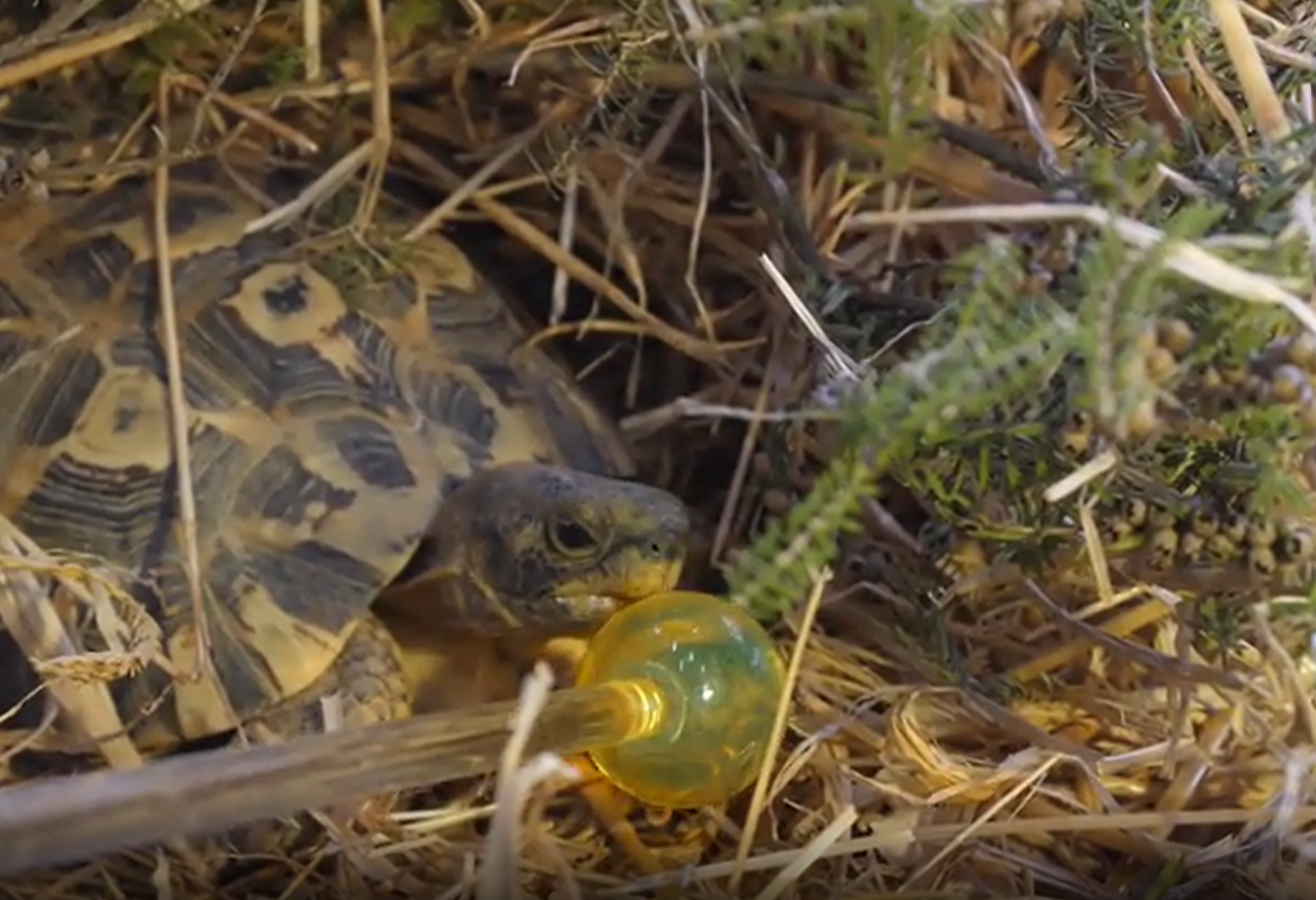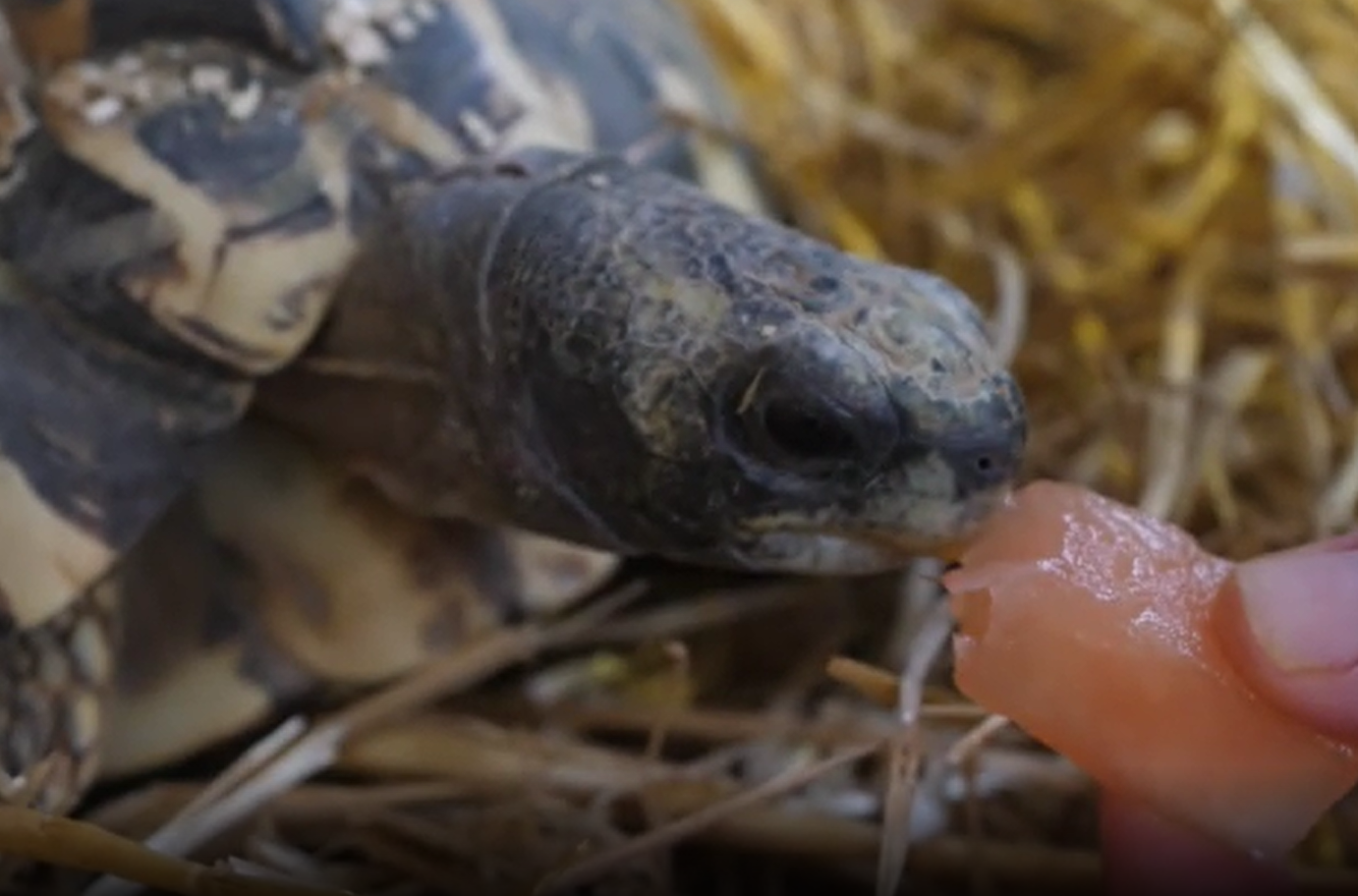Tortoise trio take training to the ‘neck’ level
A trio of Bell’s hinged-back tortoises are stretching more than their minds as part of their personal healthcare.
The tortoises are learning to extend their necks when presented with a visual cue, allowing keepers to monitor their delicate neck skin and apply a topical ointment to treat any abrasions.
Werribee Open Range Zoo keeper Allison Norris said knocks and tumbles are an inevitable part of a tortoise’s social life.
“Tortoises are surprisingly physical reptiles,” Ms Norris said. “They often interact playfully by bumping or mounting the other tortoises in their habitat.

“Mostly these behaviours occur when their head and neck are retracted inside their shells, but sometimes – when they’re caught unawares or don’t retract quickly enough – a little scratch or abrasion can occur.”
To develop this healthcare training, keepers ask the tortoises to stretch their heads forward to make contact with a bright yellow target stick. Each time a tortoise is successful, the behaviour is reinforced with a food reward.
Just like in humans, untreated wounds can result in skin infections and, in rare cases, abscesses, which would require invasive surgeries to resolve. The training also allows keepers to limit the amount of physical handling of tortoises.
“When we train our animals to participate in their own healthcare, we are able to limit human handling and set our animals up for the best long-term animal welfare by providing greater choice and control.

“They always have the choice to participate on any given day."
Werribee Open Range Zoo is home to two tortoise species, Leopard tortoise native to the savannahs of eastern and southern Africa, and Bell's hinged-back tortoises native to central Africa.
The species is classified as Vulnerable in the wild by the International Union for Conservation of Nature with populations declining due to habitat destruction, population fragmentation and bush fire.
